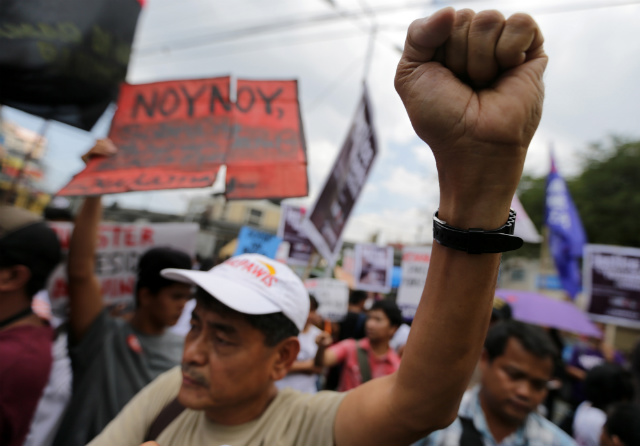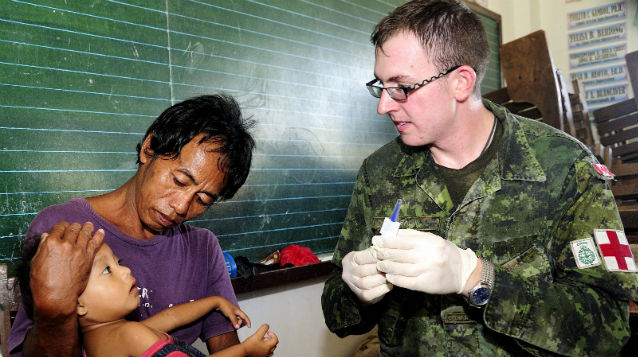SUMMARY
This is AI generated summarization, which may have errors. For context, always refer to the full article.

MANILA, Philippines – The Philippines has received at least 135% of the money that the world promised after Super Typhoon Yolanda (Haiyan) struck 6 months ago, government records show.
The mayor of worst-hit Tacloban City, however, questioned the “conditions” set by the national government for Yolanda survivors to receive these donations.
Quoting his constituents, Tacloban Mayor Alfred Romualdez told Rappler, “What is rightfully ours should be given to us, because first of all, that’s not their money.”
Romualdez made the statement a day before the Senate on Tuesday, May 13, holds a a hearing on “transparency and accountability with regard to incoming foreign and local aid.”
Records from the government’s Foreign Aid Transparency Hub (FAITH) show the Philippines has received at least P14.997 billion ($336.115 million) in cash, after the international community pledged at least P11.07 billion ($248.099 million).

The world also made non-cash pledges, ranging from medical equipment to food.
These pledges amount to at least P22.973 billion ($514.875 million), but the government doesn’t indicate how much of these non-cash pledges have been received. (This amount tends to be arbitrary because the Philippines relied on donor-countries to place monetary values on non-cash donations.)
The amount of donations received, in any case, is a far cry from previous months, when the government had reported receiving only around 20% of cash pledges.
By April, the government updated its figures after diplomats raised concerns about the accuracy of FAITH, which initially listed at least 9 donor-countries as having given zero donations.
The experience of Indonesia – an international benchmark in post-disaster rehabilitation — paints a clearer picture of these donations’ significance. Indonesia ended up having 93% of pledges fulfilled after the 2004 Indian Ocean tsunami that devastated Aceh and Nias.
‘Why put conditions?’
Despite the huge amount that the Philippines got, however, Romualdez said the national government is setting unnecessary conditions for towns and cities to avail of these donations.
“For example, kailangan ng plano. Kailangan ng ganito, kailangan ng ganyan. Eh ‘yung mga nag-donate niyan, sinabi, ibigay mo sa tao ‘yan, kailangan nila ‘yan,” Romualdez said in an interview with Rappler on Monday, May 12. (For example, they say we need a plan. We need this, we need that. But those who donated that said give that to people, the people need that.)
He added: “That was given by people outside of the Philippines who, you know, wanted us to receive that money with no conditions. Why now are they putting conditions? They are not giving us the money.”
He said the national government should “have a dialogue with the people and tell them where the money went.” (Watch the full Rappler interview below)
For Romualdez, the government simply employs too much red tape.
He stressed the need for the Department of Budget and Management (DBM), for one, to promptly release funds to other departments, which will then use the money to help Yolanda survivors. “Eh kung hindi pondohan ng DBM ang department, ano na ang magagawa ng department?” (If the DBM doesn’t fund the department, what can the department do?)
Budget Secretary Butch Abad, for his part, told Rappler his department wants to speed up the release of rehabilitation funds. He added the DBM “will also prefer releasing funds” to local government units (LGUs) for projects they can undertake.
Abad however added, “The problem with some LGUs is capacity, not just to implement but even more basically to prepare plans, feasibility studies, programs of work, and monitoring and reporting systems.” – Rappler.com
Add a comment
How does this make you feel?
There are no comments yet. Add your comment to start the conversation.